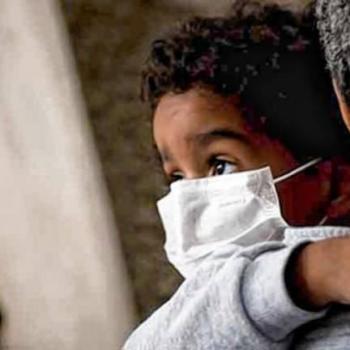By Ben Hachten
Turn off your radio. Put away your daily paper. Read one review of events a week and spend some time reading good books. They tell too of days of striving and of strife. They are of other centuries and also of our own. They make us realize that all times are perilous, that men live in a dangerous world, in peril constantly of losing or maiming soul and body. We get some sense of perspective reading such books. Renewed courage and faith and even joy to live.
My strength returns to me with my cup of coffee and the reading of the psalms.
If you are rushed for time, sow time and you will reap time. Go to church and spend a quiet hour in prayer. You will have more time than ever and your work will get done.
Modern people (myself included) tend to think that they are living in the most chaotic times in human history, that there has never before been such a vast amount of problems plaguing our society and the world.
It is true that some of the problems we face today—cultural, political, and social—are more complex than in days past, largely due, at least in my opinion, to ever-increasing global interconnectedness, capitalistic excess, commodification of the human person, and dubious technological advances. But it is also true that there have always been problems. And there always will be, so long as the temporal realm exists.
You see, the human condition has always remained, and will always remain, the same: fallen. This is one of the central claims of Christianity—that human beings, though created in the image and likeness of God and certainly capable of immense good, are plagued by original sin and thus often fall captive to sinful ways of thinking and doing. (This is why we require a Redeemer who can restore us to the dignity that we were originally intended to enjoy and who will ultimately make all things new).
Humans exploit, murder, and oppress. As the author of Ecclesiastes wisely notes, “What has been, that will be; what has been done, that will be done. Nothing is new under the sun!” (Ecclesiastes 1:9). The point: thanks to human nature, the world will always be flummoxed with a myriad of problems.
In a chaotic and fallen world, one way of coping is to continually fixate on all of the problems that surround us. Modernity presents us with many opportunities to stew over the latest outrage. Media headlines are drafted to instantly spike your adrenaline and to make you angry; it’s what keeps you coming back for another hit, time and time again.
Social media feeds are almost exclusively filled with toxic complainers. Indeed, social media is generally far worse than even your most partisan news source, because it gives us the sense that we are actually doing something about the problems of the world, when in reality we are just furthering a sense of helplessness and anxiety over the ills and injustices in the world. Though your thumbs may get some exercise, a tweet is not action in the slightest.
Don’t get me wrong. There are certainly very real injustices in the world, and as Catholics we’re called to stand up (literally stand, not just post on Facebook) for the oppressed, for the poor, for the downtrodden. We’re called to see Christ in every person, not just those with whom we agree, and to actively exhibit Christ’s love in the world. But there is a very real sense in which the media empowers us moderns to overestimate our own importance and the problems of our day. This leads us to think that our problems are so vast that the only solution is either “political” action (which most often requires nothing of us other than voting or donating a few bucks to a nonprofit) or no action at all (read: hopelessness).
Both of these outcomes fall short of our duty as Catholics; both are forms of inaction that prevent us from encountering others and loving our neighbor as Christ commands; and both are signs that we lack interior peace.
The witness of Dorothy Day, arguably the greatest social activist in recent history and a devout Catholic, shows us that we can accomplish nothing worthwhile without first obtaining interior peace. She solved many problems and served many people, and she will likely be canonized for her efforts.
Yet Dorothy understood that there is no problem that we can solve unless we understand the root cause of all the world’s problems—sin—and we seek to root it out within ourselves before pointing to the sins of others. She understood the need to prioritize, cultivate, and nourish a deep interior life. Only then can we act in any meaningful way.
As you see from the quotes at the beginning of this article, Dorothy gave little credence to headlines (and there were fortunately no “feeds” in her time, though I doubt she would’ve read those either). Instead, she sought interior peace by an intense prayer life, a fervent devotion to the sacraments (she went to Daily Mass and weekly Confession), and reading literature, Scripture, and other timeless written works.
It was only through her deep understanding of her own nature and by creating space for her interior life to grow that Dorothy was able to give her entire self to the poor. She was unable to be paralyzed by distressing events in the world, because she was on a mission to bring Christ to the world, a mission that was undoubtedly fostered by a deep interior peace. She was free.
What would Dorothy say to us today?
Probably this: Turn off CNN and Fox. Stop reading those articles by your favorite partisan hack that leave you anxious, afraid, and hopeless. If you want to know what’s going on in the world, there are many ways to do that without getting sucked into the mess (a nonpartisan newsletter, for instance). Battle against the temptation to overestimate the importance of your own time.
Refuse to get sucked into the cycle of rumination and inaction. Pray often. Frequent the sacraments. Read Scripture and good literature. Create space to think, to love, to just be. There will always be problems, and you will have no energy to solve them until you are at peace, until your peace is found in He alone who is peace.
“In His will there is our peace.” – Dante Alighieri














